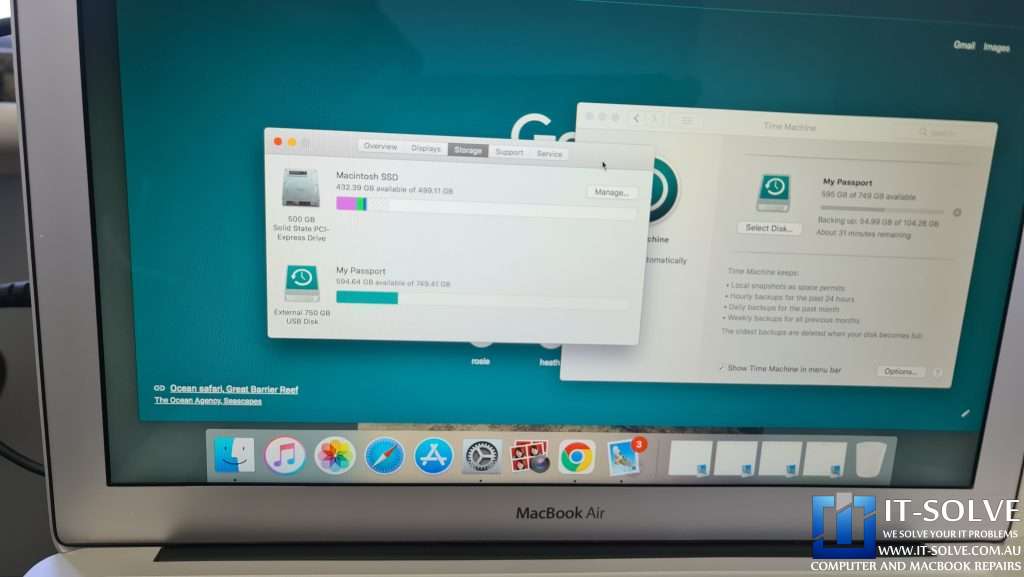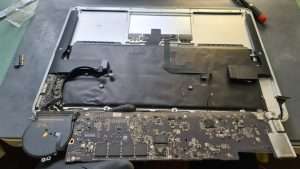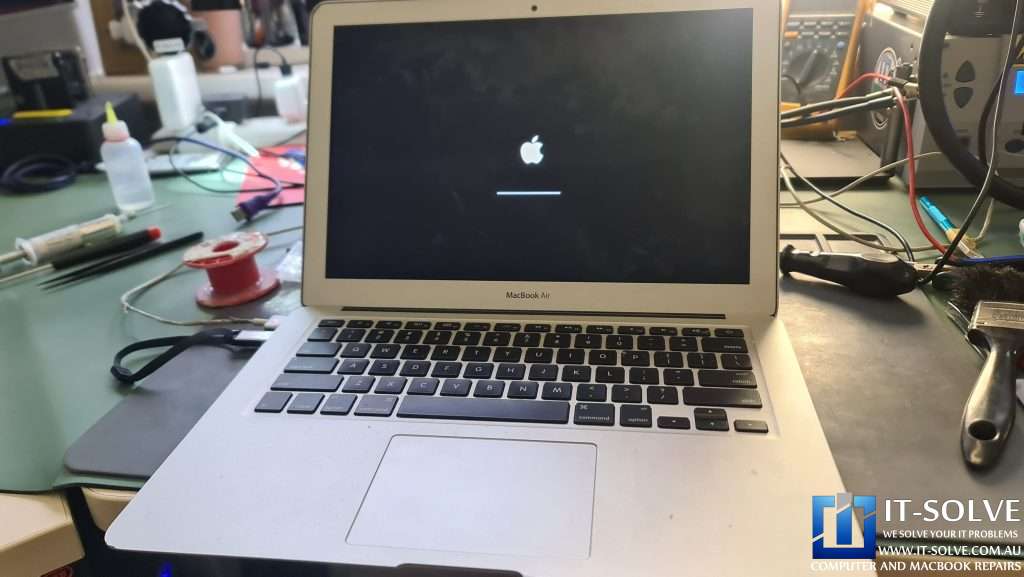
This 2013 Macbook Air came to our Adelaide workshop with strange issues. Initially, the problem was that the system was running relatively slow. Then, we checked the SSD Drive, reporting SMART level failures.
We recommended replacing the 128GB SSD drive, as it produces errors and runs out of space.
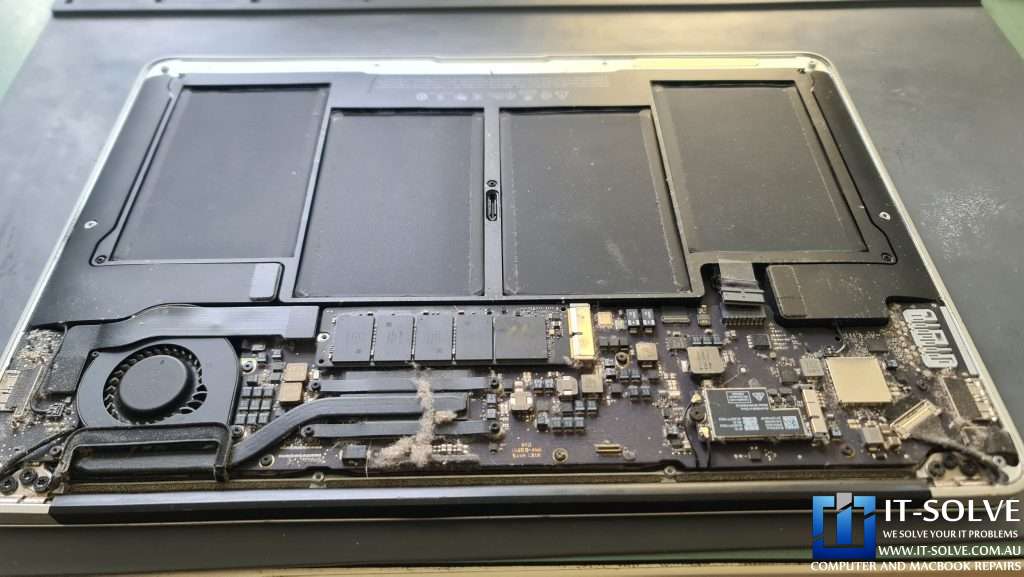
The dust gathered for the past nine years must have caused consistent overheating. Such a heat source can fail any SSD.
Unstable Macbook Air Repair Process – Replacing the SSD
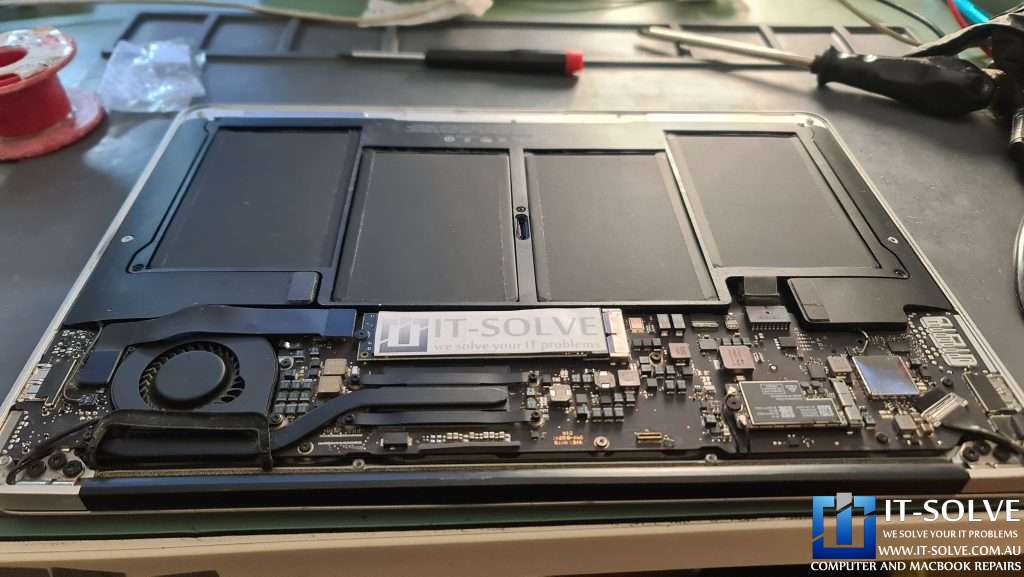
We have replaced the SSD drive with a 500GB one. New SSD ensures plenty of space to keep all customer images and data.
While installing the operating system to a newly fitted SSD, the system became even more unstable.
Finally, it shut down and refused to turn on. Again, stress from the intensive work must have triggered an electronic fault.
Unstable Macbook Air Repair Process – Logic Board Repair
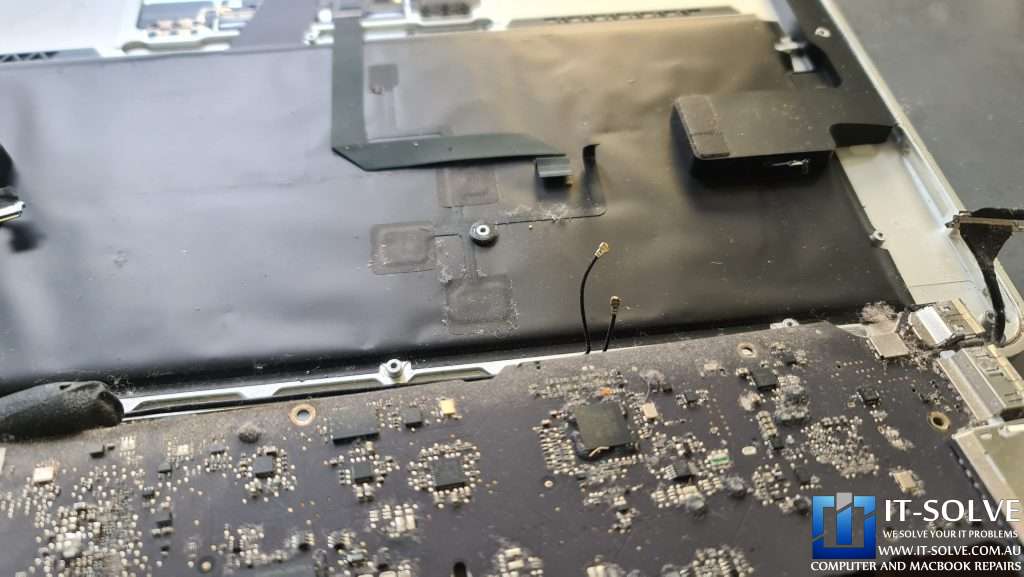
Taking out the board revealed organic material around the SMC. Such issues could be the cause of the sudden loss of power of this Macbook Air.
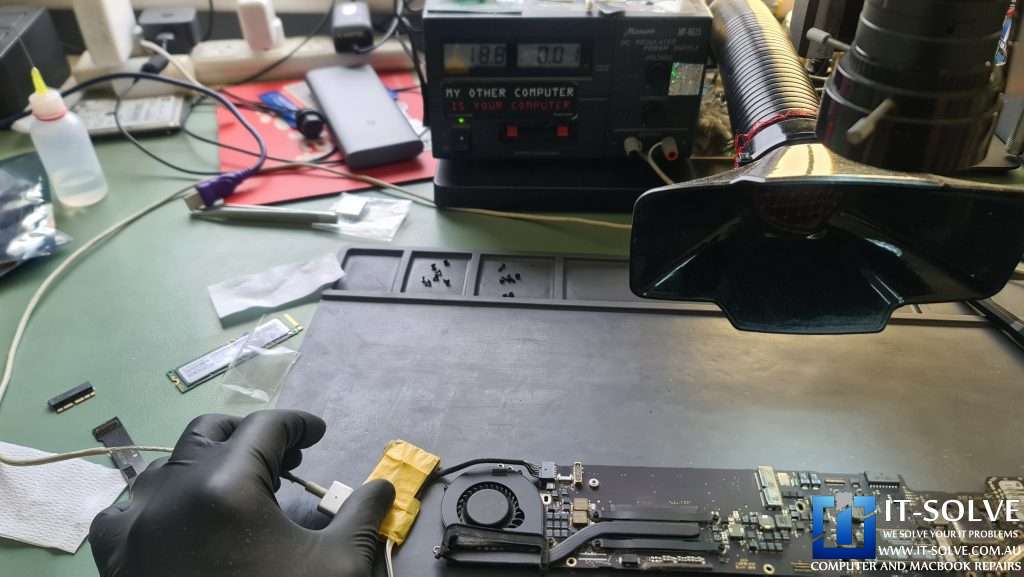
Connected to the power supply, we saw that the board was not pulling any current. Such failure usually indicates electronic failure needing a Macbook Air not Turning On Reair in Adelaide.
As a first step, Logic Board Repair on this A1466 Macbook Air in our Adelaide workshop required removing the oxidation around the SMC. System Management Controller is responsible for ensuring all communication on low-level components is going okay. If any communication lines are not feeling well, SMC will not approve turning on the Macbook.
The board revealed the amount of dust collected on it. This dust acted as a sponge and absorbed the humidity from the air over the past nine years. This humidity is like tooth decay. Depending on the amount and location, the longer it stays more it corrodes and damages the traces and components.
Successful Macbook Air Repair
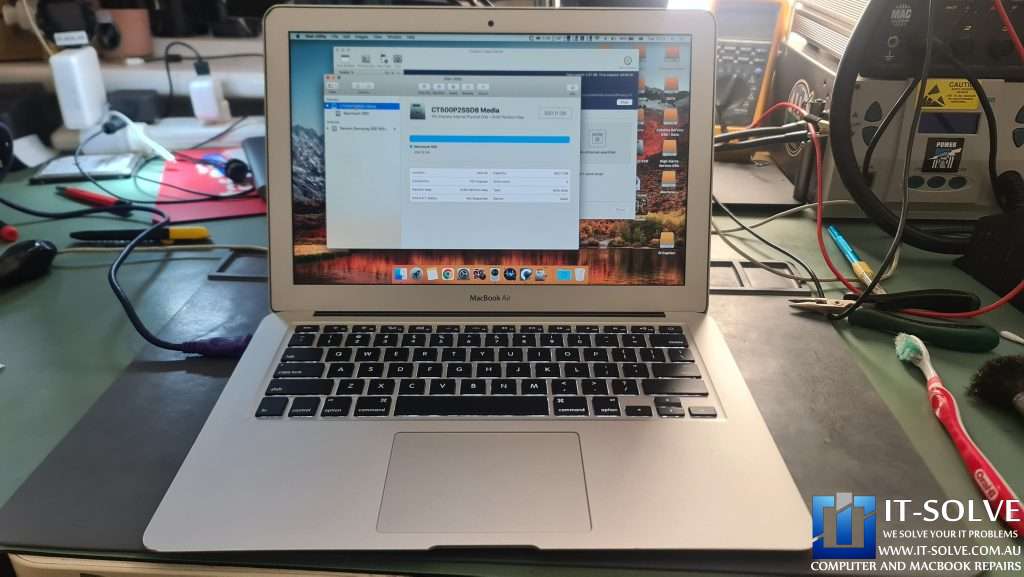
Once we cleaned the oxidation and replaced the shorted capacitor, Macbook was back to life. And we could continue with the installation of our upgraded SSD.
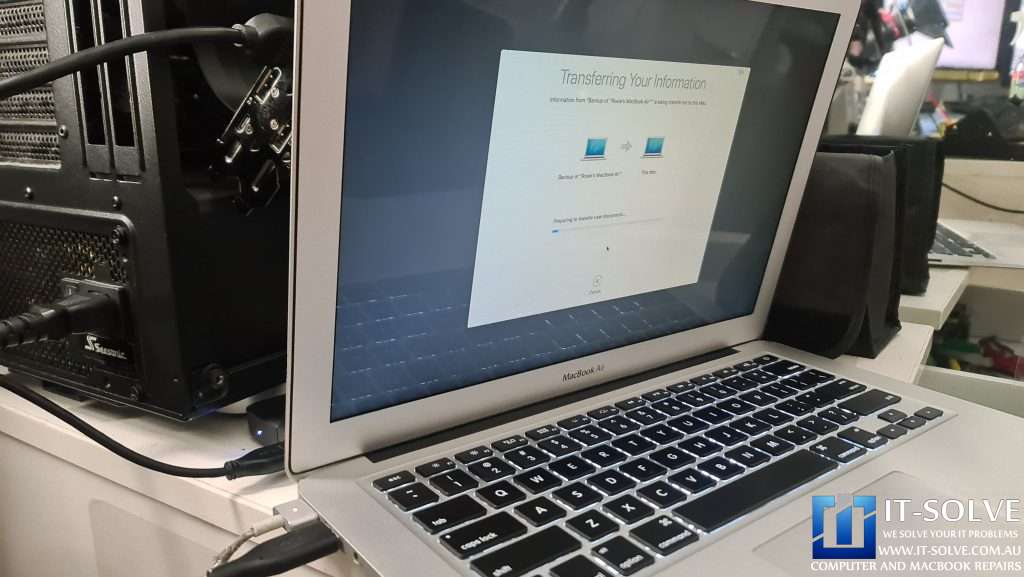
One of the last generation upgradable Macbook Air received a well-deserved pampering. This way, it will serve for at least 3-5 years. Additionally, the limitation of not being able to be upgraded to the latest macOS is a blessing. This way, there is no risk of the operating system becoming slow due to a software update, as we see more often these days with newer Macs and iPhones.
